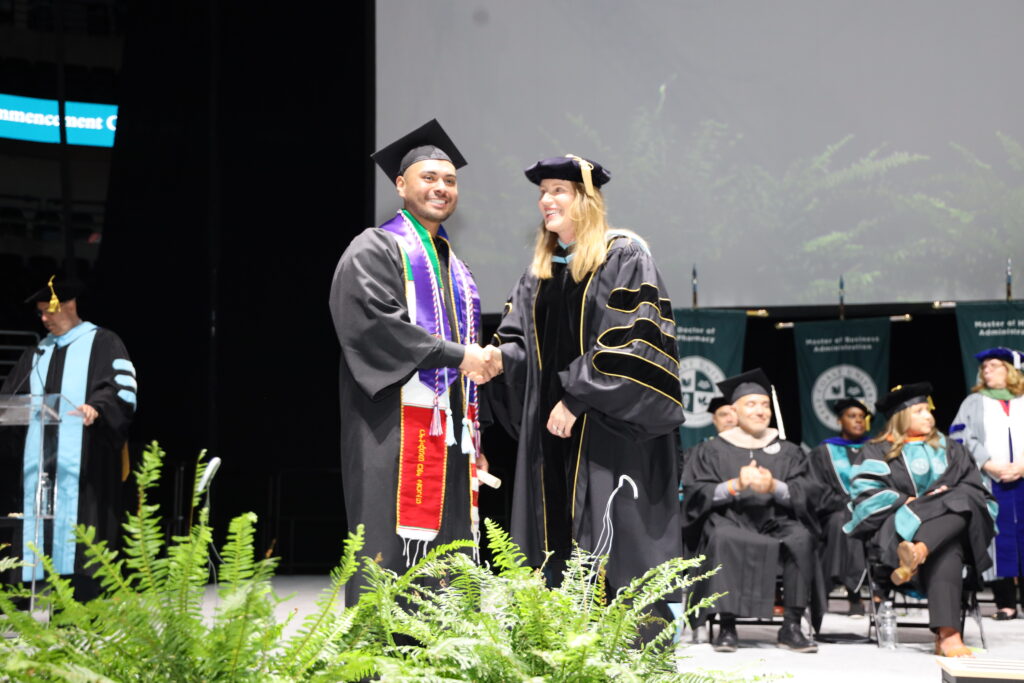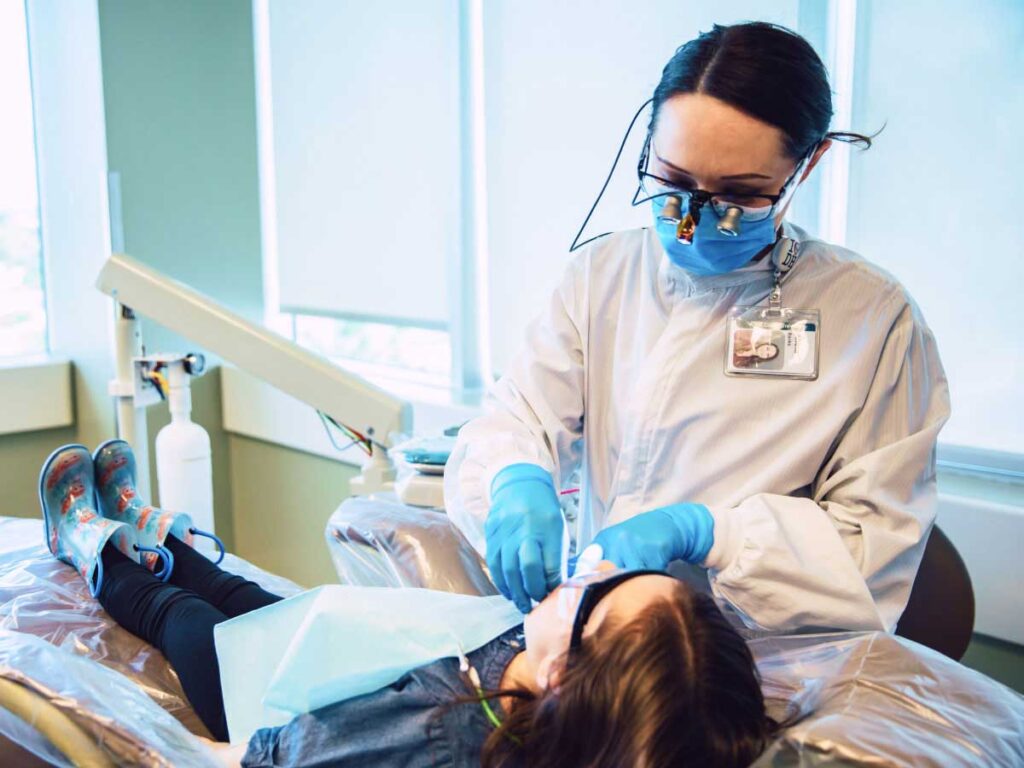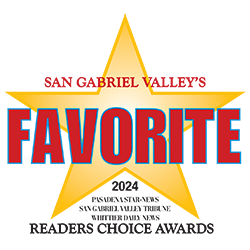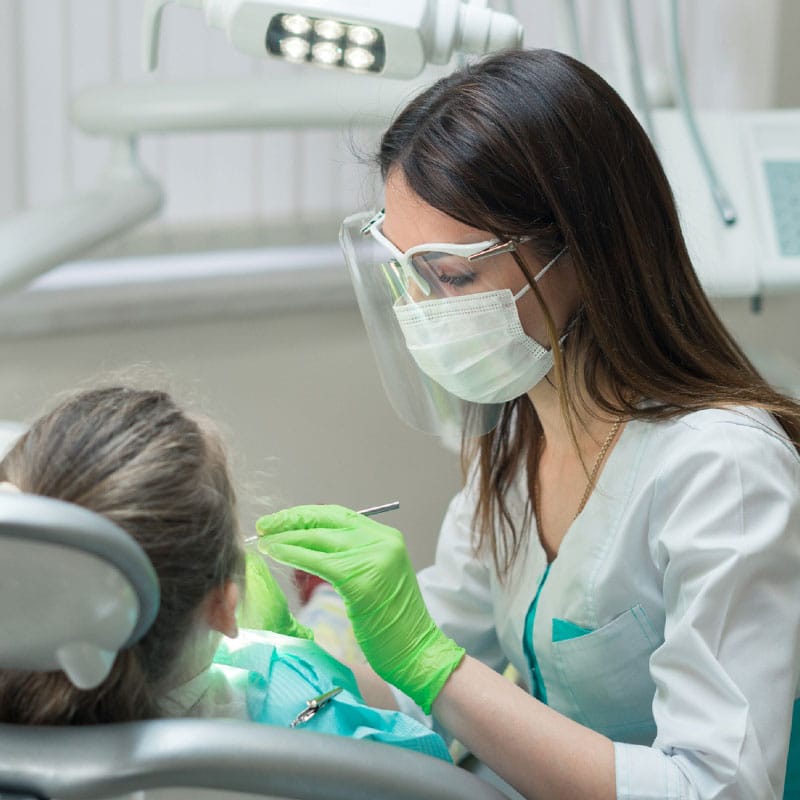Alumni
Graduate
News
Student Lounge



10-week terms allow for start dates throughout the year
Earn your Bachelor of Science in Dental Hygiene degree in as little as 34 months
Complete 124 credits to obtain your dental hygiene bachelor’s degree

West Coast University Orange County has been voted as a FAVORITE in the Career College/Trade School for the San Gabriel Valley Readers Choice Awards!
Comprehensive curriculum that includes a research course and training on emotional intelligence
Simulation labs equipped with one station per student to help you maximize practice time
On-site WCU Dental Hygiene Clinic right on campus for real-life experience with patients
Help preparing for your licensure exam with tutoring and one-on-one counseling

Our BSDH program, offered at the WCU Orange County Campus, helps you prepare for exciting roles in dental care in as little as 34 months. Become a qualified dental hygienist with the knowledge, skills, and values needed to deliver excellence in patient care, research, and community service.
As a WCU dental hygiene student, you get your own dedicated simulation unit, dental chair, and radiology equipment for the duration of class so you can maximize practice time and develop confidence.
You’ll gain real-life experience while giving back to the community at our WCU Dental Hygiene Clinic (located right on campus!) where you’ll get to experience every aspect of running a dental facility.
The BSDH curriculum at WCU goes beyond foundational training, introducing you to topics like public health, patient education, research, and practice management. These courses help broaden your understanding and equip you for more diverse roles in the field.
The BSDH program is designed to help prepare you for the national and state licensing exams required to practice as a dental hygienist. Our simulation labs and clinical experiences are structured to support your licensure readiness.
While clinical care remains central to dental hygiene, our program also prepares you for opportunities in community health, education, and even dental hygiene research. Whether you want to work in a public clinic or teach future dental hygienists, a BSDH can be a great foundation.
• Dental simulation stations for every student
• Individual support through graduation and beyond
• On-campus practice with real patients
On-Campus
124 Credits
34 Months
7 Semesters
| Category and Requirements | WCU Course Requirements | Transferable / Options |
|---|---|---|
| Foundational Course | FHE 100 (3): Foundations of Higher Education | Non-transferable |
| A. Written Communications (6 Semester Credits) |
*ENGL 140 (3): Written Communication I *ENGL 240 (3): Written Communication II |
Equivalent to ENGL 140
Equivalent to ENGL 240 |
| B. Oral and Interpersonal Communications (3 Semester Credits) |
*SPCH 142 (3): Oral Communication | Equivalent to SPCH 142 |
| C. Critical Thinking and Ethical Reasoning (3 Semester Credits) |
*PHIL 341 (3): Critical Reasoning | Equivalent to PHIL 341 |
| D. Quantitative Literacy (6 Semester Credits) |
MATH 108 (3): College Mathematics I MATH 211 (3): Statistics |
Equivalent to MATH 108
Equivalent to MATH 211 |
| E. Social and Behavioral Sciences (6 Semester Credits) |
*PSYC 160 (3): Psychology SOC 280 (3): Sociology |
Equivalent to PSYC 160 Equivalent to SOC 280 |
| G. Scientific Reasoning (19 Semester Credits) |
ANAT 260 (4): Human Anatomy PHYS 261 (4): Human Physiology CHEM 280 (4): Chemistry CHEM 285 (3): Biochemistry DH MICR 290 (4): General Microbiology |
Equivalent to ANAT 260 Equivalent to PHYS 261 Equivalent to CHEM 280 CHEM 285 is Non-transferableEquivalent to MICR 290 |
| A minimum of 46 credits is required for graduation. | ||
| DHYG 302 | Introduction to Dental Hygiene Practice w/Lab | 4 |
| DHYG 303 | Infection Control Lab | 1 |
| DHYG 305 | General Pathology Immunology and Medical Terminology | 2 |
| DHYG 312 | Pre-Clinical Dental Hygiene I w/Lab | 4 |
| DHYG 315 | Oral Pathology | 3 |
| DHYG 322C | Pre-Clinical Dental Hygiene II | 4.5 |
| DHYG 324 | Cultural Competency in Healthcare | 1 |
| DHYG 325 | Medically Compromised Care & Emergencies | 3 |
| DHYG 332C | Pre-Clinical Dental Hygiene III | 3.5 |
| DHYG 335 | Dental Radiology Science w/Lab | 2 |
| DHYG 341 | Dental Embryology Histology and Anatomy w/ Lab | 3 |
| DHYG 345 | Dental Radiology Interpretation w/Clinic | 1.5 |
| DHYG 351 | Preventive Dentistry and Risk Assessment | 2 |
| DHYG 355 | Head & Neck Anatomy | 2 |
| DHYG 360 | Pain Management w/Lab | 3 |
| DHYG 362 | Dental Materials w/Lab | 2.0 |
| DHYG 370 | Basic and Applied Pharmacology | 3 |
| DHYG 375 | Introduction to Periodontology | 2 |
| DHYG 402 | Clinical Seminar I | 1 |
| DHYG 405C | Clinical Practice I | 2.5 |
| DHYG 412 | Clinical Seminar II | 1 |
| DHYG 415C | Clinical Practice II | 3 |
| DHYG 422 | Clinical Seminar III | 1 |
| DHYG 425C | Clinical Practice III | 3 |
| DHYG 430 | Biochemistry and Nutrition | 2 |
| DHYG 432 | Clinical Seminar IV | 1 |
| DHYG 435C | Clinical Practice IV | 3.5 |
| DHYG 440 | Research Methodology | 2 |
| DHYG 442 | Applied Research Lab | 1 |
| DHYG 450 | Ethics Seminar | 1 |
| DHYG 455 | Dental Public Health | 2 |
| DHYG 465 | Community Dental Health Project | 1 |
| DHYG 470 | Practice Management and Jurisprudence | 2 |
| DHYG 475 | Applied Periodontology | 2 |
| DHYG 482 | Advanced Dental Hygiene Topics | 1 |
| DHYG 492 | Professional Development Project | 1.5 |
| Total Credit Hours: | 78.0 | |
Program Credit Distribution
BSDH
| General Education Semester Credits | 46.0 |
| Core Dental Hygiene Semester Credits | 78.0 |
| Total Program Semester Credits | 124.0 |
We know school is a substantial commitment. At WCU, we want to equip you with all the information you need to make the right decision for your future.
Our goal is to give you a clear understanding of BSDH tuition costs so you can be well-informed as you navigate the application and enrollment process. To assist you in your decision, we provide a breakdown below of the BSDH program costs at West Coast University.
We offer several financial aid options — including scholarships, grants, and loan access — to help support you through your studies.
For more information about your financial support options, visit our financial aid page.
Estimated Cost of Attendance is comprised of both direct costs and indirect costs, as outlined in the charts below. The purpose of the Cost of Attendance (COA) is to provide students and families with an estimated cost to attend West Coast University. The COA includes both direct and indirect cost estimates and are categorized as follows: (1) Direct costs are paid directly to West Coast University and are shown separately for each program; (2) Indirect costs are not paid to West Coast University and are estimates students may use to budget expenses they may incur while attending school. While actual indirect costs may vary, West Coast University estimates these amounts based on the number of months in an academic year and whether students will live with parents or off campus.
Direct Costs
| Total Program Credits | 124 |
| Program Length (Full-Time) | 7 semesters |
| Full-Time Status (12 to 18 credits) | $18,158 |
| 3/4-Time Status (9 to 11 credits) | $15,167 |
| 1/2-Time Status (6 to 8 credits) | $11,783 |
| Less than 1/2-Time Status (per credit if under 6 credits) | $1,995 |
| Total Tuition Costs(Full-Time) | $127,106 |
| Registration Fee (refundable) | $75 |
| STRF Fee1 (non-refundable) | $0 |
| Estimated Total Book Costs2 | $6,556 |
| Estimated Total Book Shipping Cost2 | $671 |
| Estimate for Uniform Fees2 | $250 |
| Estimate for Supplies &Licensure Prep. Fees2 | $5,700 |
| Technology Fee3 ($100 per semester) | $700 |
| General Education Resource Fee4 | $500 |
| Estimated Total Program Costs | $141,543 |
Indirect Costs
| 10 Month Academic Year | ||||
| Prior to Fall 1 2025 | Starting Fall 1 2025 | |||
| with parents | off campus | with parents | off campus | |
| Federal Student Loan Fees | $100 | $100 | $100 | $100 |
| Course Materials (Personal Electronic Device – 1st year only) | $1,000 | $1,000 | $1,000 | $1,000 |
| Food & Housing | $3,120 | $10,410 | $3,270 | $10,910 |
| Transportation | $2,160 | $2,160 | $2,200 | $2,200 |
| Personal Expenses | $7,070 | $7,070 | $7,070 | $7,070 |
| Total | $13,450 | $20,740 | $13,660 | $21,300 |
1 Effective April 1, 2024, the Student Tuition Recovery Fund (STRF) assessment rate will be zero dollars and zero cents ($0.00) per one thousand dollars ($1,000) of institutional charges.
The State of California established the Student Tuition Recovery Fund (STRF) to relieve or mitigate economic loss suffered by a student in an educational program at a qualifying institution, who is or was a California resident while enrolled, or was enrolled in a residency program, if the student enrolled in the institution, prepaid tuition, and suffered an economic loss. Unless relieved of the obligation to do so, you must pay the state-imposed assessment for the STRF, or it must be paid on your behalf, if you are a student in an educational program, who is a California resident, or are enrolled in a residency program, and prepay all or part of your tuition.
You are not eligible for protection from the STRF and you are not required to pay the STRF assessment, if you are not a California resident, or are not enrolled in a residency program.
It is important that you keep copies of your enrollment agreement, financial aid documents, receipts, or any other information that documents the amount paid to the school. Questions regarding the STRF may be directed to the Bureau for Private Postsecondary Education, 1747 N. Market Blvd. Ste 225 Sacramento, CA 95834, (916) 431-6959 or (888) 370-7589.
To be eligible for STRF, you must be a California resident or enrolled in a residency program, prepaid tuition, paid or deemed to have paid the STRF assessment, and suffered an economic loss as a result of any of the following:
To qualify for STRF reimbursement, the application must be received within four (4) years from the date of the action or event that made the student eligible for recovery from STRF.
A student whose loan is revived by a loan holder or debt collector after a period of noncollection may, at any time, file a written application for recovery from STRF for the debt that would have otherwise been eligible for recovery. If it has been more than four (4) years since the action or event that made the student eligible, the student must have filed a written application for recovery within the original four (4) year period, unless the period has been extended by another act of law.
However, no claim can be paid to any student without a social security number or a taxpayer identification number.
2 The Estimate for Book, Uniform, and Supply fees reflect the Manufacturer’s Suggested Retail Price totals compiled in December 2024 and are subject to change. Supplies become student purchases once issued to student. Students who drop or have been dismissed after supplies have been issued will assume ownership for these items and will not be eligible for refunds. For details on all of the supplies, contact the Student Accounts Office.
Dental Hygiene supplies are issued in DHYG 302 Introduction to Dental Hygiene Practice with Lab.
3 Technology Fee includes student technical support, Office 365, blended and online course delivery/learning management system, mobile app, student portal technology and access, and required electronic course materials/software.
4 The General Education Resource Fee includes costs associated with lab supplies and materials, Labster virtual labs and simulations, and Tutor.com access.
Note 1: Students who wish to take Challenge Exams will be subject to a fee of $100 for each Challenge exam. Please see the campus Student Accounts Office for a full price listing.
Note 2: Course Audit Policy – Students auditing a course are not charged tuition or fees for the audited course. However, if a student enrolls in both an audit course and a credit-bearing course in the same semester/trimester, they will be responsible for the tuition and applicable fees associated with the credit-bearing course.
Note 3: The Total Tuition Cost can be converted to Cost per Credit Hour by using the following calculation:
Total Tuition Cost ($127,106) divided by the Total Program Credits (124) = Cost per Credit Hour ($1025).
Direct Costs
| Total Program Credits | 124 |
| Program Length (Full-Time) | 7 semesters |
| Full-Time Status (12 to 18 credits) | $18,158 |
| 3/4-Time Status (9 to 11 credits) | $15,167 |
| 1/2-Time Status (6 to 8 credits) | $11,783 |
| Less than 1/2-Time Status (per credit if under 6 credits) | $1,995 |
| Total Tuition Costs(Full-Time) | $127,106 |
| Registration Fee (refundable) | $75 |
| STRF Fee1(non-refundable) | $0 |
| Registration Fee (refundable) | $75 |
| Estimated Total Book Costs2 | $6,882 |
| Estimated Total Book Shipping Cost2 | $688 |
| Estimate for Uniform Fees2 | $250 |
| Estimate for Supplies &Licensure Prep. Fees2 | $5,700 |
| Technology Fee3 | $700 |
| General Education Resource Fee4 | $500 |
| Estimated Total Program Costs | $141,901 |
Indirect Costs
| 10 Month Academic Year | ||||
| Prior to Fall 1 2025 | Starting Fall 1 2025 | |||
| with parents | off campus | with parents | off campus | |
| Federal Student Loan Fees | $100 | $100 | $100 | $100 |
| Course Materials (Personal Electronic Device – 1st year only) | $1,000 | $1,000 | $1,000 | $1,000 |
| Food & Housing | $3,120 | $10,410 | $3,270 | $10,910 |
| Transportation | $2,160 | $2,160 | $2,200 | $2,200 |
| Personal Expenses | $7,070 | $7,070 | $7,070 | $7,070 |
| Total | $13,450 | $20,740 | $13,660 | $21,300 |
1 Effective April 1, 2024, the Student Tuition Recovery Fund (STRF) assessment rate will be zero dollars and zero cents ($0.00) per one thousand dollars ($1,000) of institutional charges.
The State of California established the Student Tuition Recovery Fund (STRF) to relieve or mitigate economic loss suffered by a student in an educational program at a qualifying institution, who is or was a California resident while enrolled, or was enrolled in a residency program, if the student enrolled in the institution, prepaid tuition, and suffered an economic loss. Unless relieved of the obligation to do so, you must pay the state-imposed assessment for the STRF, or it must be paid on your behalf, if you are a student in an educational program, who is a California resident, or are enrolled in a residency program, and prepay all or part of your tuition.
You are not eligible for protection from the STRF and you are not required to pay the STRF assessment, if you are not a California resident, or are not enrolled in a residency program.
It is important that you keep copies of your enrollment agreement, financial aid documents, receipts, or any other information that documents the amount paid to the school. Questions regarding the STRF may be directed to the Bureau for Private Postsecondary Education, 1747 N. Market Blvd. Ste 225 Sacramento, CA 95834, (916) 431-6959 or (888) 370-7589.
To be eligible for STRF, you must be a California resident or enrolled in a residency program, prepaid tuition, paid or deemed to have paid the STRF assessment, and suffered an economic loss as a result of any of the following:
To qualify for STRF reimbursement, the application must be received within four (4) years from the date of the action or event that made the student eligible for recovery from STRF.
A student whose loan is revived by a loan holder or debt collector after a period of noncollection may, at any time, file a written application for recovery from STRF for the debt that would have otherwise been eligible for recovery. If it has been more than four (4) years since the action or event that made the student eligible, the student must have filed a written application for recovery within the original four (4) year period, unless the period has been extended by another act of law.
However, no claim can be paid to any student without a social security number or a taxpayer identification number.
2 The Estimate for Book, Uniform, and Supply fees reflect the Manufacturer’s Suggested Retail Price totals compiled in December 2024 and are subject to change. Supplies become student purchases once issued to student. Students who drop or have been dismissed after supplies have been issued will assume ownership for these items and will not be eligible for refunds. For details on all of the supplies, contact the Student Accounts Office.
Dental Hygiene supplies are issued in DHYG 302 Introduction to Dental Hygiene Practice with Lab.
3 Technology Fee includes student technical support, Office 365, blended and online course delivery/learning management system, mobile app, student portal technology and access, and required electronic course materials/software.
4 The General Education Resource Fee includes costs associated with lab supplies and materials, Labster virtual labs and simulations, and Tutor.com access.
Note 1: Students who wish to take Challenge Exams will be subject to a fee of $100 for each Challenge exam. Please see the campus Student Accounts Office for a full price listing.
Note 2: Course Audit Policy – Students auditing a course are not charged tuition or fees for the audited course. However, if a student enrolls in both an audit course and a credit-bearing course in the same semester/trimester, they will be responsible for the tuition and applicable fees associated with the credit-bearing course.
Note 3: The Total Tuition Cost can be converted to Cost per Credit Hour by using the following calculation:
Total Tuition Cost ($127,106) divided by the Total Program Credits (124) = Cost per Credit Hour ($1025).
Applicants, including applicants for advanced standing, for the Bachelor of Science Degree in Dental Hygiene (BSDH) program must: Complete a minimum of 8 hours of observation of at least two dental hygienists in clinical practice. The applicant must have the dental hygienist sign the verification form and the applicant must write a response paper following the stated parameters. Observation hours will not qualify if the license cannot be verified and/or if the applicant observes a dentist or dental assistant. Observation hours are considered as valid for one year.
Pass the Assessment Technologies Institute, LLC (ATI™) Test for Essential Academic Skills (TEAS®) (ATI TEAS) with a minimum Individual Total Score at or above 50.0. An applicant has two attempts at the ATI TEAS exam. If an applicant does not pass the ATI TEAS exam after two attempts, the applicant must wait 6 months for a third attempt with a proof of remediation is also required. Passing ATI TEAS scores are valid for one year. Individuals who are unable to score at or above 50.0 may be admitted to the program under the following conditions:
Please Note: Application deadlines and information about the ATI TEAS Examination and Dental Hygiene Observation are provided during the application process and at Information Sessions.
Selection Process: Dental Hygiene program applicants will be notified of acceptance status once the completed application and supporting documentation have been evaluated and the selection process has concluded. The selection process includes an objective evaluation of:
Based on a 100 point scale, 75 maximum points from the ATI TEAS and 25 maximum points from the Dental Hygiene Observation documents, applicants are ranked and selected for admission into the Dental Hygiene program. There is no waiting list for subsequent admission. Applicants not selected must reapply and resubmit all required materials.
For more information on admission requirements, including our transfer credit policy, please visit our catalog.
New academic terms begin, on average, every 10 weeks. For the most updated list of term start and completion dates, view the Academic Calendar.
The Bachelor of Science in Dental Hygiene program’s mission is to impact the future of oral health care by graduating highly qualified dental hygienists through excellence in education, faculty, patient care, innovation, research, community service, public health, and facilities.
Upon successful completion of the program and all licensing examinations, the entry-level dental hygienist will be able to:
The objective of the Bachelor of Science in Dental Hygiene program is to help students become competent in the knowledge, skills, and values of dental hygiene, while building upon a liberal arts and science educational background that expands a view of oral health and disparity. This program focuses on the development of dental hygienists as life-long learners and critical thinkers with a commitment to professional leadership.
The Dental Hygiene program is accredited by the Commission on Dental Accreditation (CODA) of the American Dental Association. The Commission is a specialized accrediting body recognized by the United States Department of Education. The Commission on Dental Accreditation can be contacted at (312) 440-4653.
Commission on Dental Accreditation
211 East Chicago Avenue
Chicago, IL 60611
(312) 440-2500
www.ada.org/en/coda/accreditation
Comments must be received by March 7, 2025
Standards may be obtained and comments may be submitted to:
Ms. Kathleen Navickas
navickask@ada.org
Commission on Dental Accreditation or by calling 1/800-232-6108, extension 2695
For more information, see the entire policy on Third Party Comments in the Evaluation Policies & Procedures manual: https://coda.ada.org/-/media/project/ada-organization/ada/coda/files/eopp.pdf.
The Bachelor of Science in Dental Hygiene program’s mission is to impact the future of oral health care by graduating highly qualified dental hygienists through excellence in education, faculty, patient care, innovation, research, community service, public health, and facilities.
Upon successful completion of the program and all licensing examinations, the entry-level dental hygienist will be able to:
The objective of the Bachelor of Science in Dental Hygiene program is to help students become competent in the knowledge, skills, and values of dental hygiene, while building upon a liberal arts and science educational background that expands a view of oral health and disparity. This program focuses on the development of dental hygienists as life-long learners and critical thinkers with a commitment to professional leadership.
The Dental Hygiene program is accredited by the Commission on Dental Accreditation (CODA) of the American Dental Association. The Commission is a specialized accrediting body recognized by the United States Department of Education. The Commission on Dental Accreditation can be contacted at (312) 440-4653.
Commission on Dental Accreditation
211 East Chicago Avenue
Chicago, IL 60611
(312) 440-2500
www.ada.org/en/coda/accreditation
Comments must be received by March 7, 2025
Standards may be obtained and comments may be submitted to:
Ms. Kathleen Navickas
navickask@ada.org
Commission on Dental Accreditation or by calling 1/800-232-6108, extension 2695
For more information, see the entire policy on Third Party Comments in the Evaluation Policies & Procedures manual: https://coda.ada.org/-/media/project/ada-organization/ada/coda/files/eopp.pdf.

WCU Career Services offers dental hygiene career information and career planning advice. Receive assistance with everything from resume writing to interview preparation and job leads.1
While we can’t guarantee employment, we can help you prepare to make the most of every dental hygiene career opportunity. It’s one-stop support — before and after graduation — to help you advance your education.
Dental hygienists can work in a wide variety of settings. According to the American Dental Hygienists’ Association, these work settings include:
Our Career Services team can help you identify dental hygienist job openings and help you take steps to pursue those opportunities.
Attend an info session to learn what all the buzz is about.
Dr. Michelle Hurlbutt is the Dean of Dental Hygiene at West Coast University where she has held this position since 2015. She earned her Bachelor of Science in Dental Hygiene degree from the University of Nebraska, her Master of Science in Dental Hygiene Education from the University of Missouri-Kansas City, and her Doctor of Health Science from Nova Southeastern University.
Michelle joined West Coast University in 2014 and has been in dental hygiene education for over 20 years, teaching a variety of courses including research methodology, pharmacology, nutrition, medically compromised care, and radiology. Her career has spanned private practice, public health, corporate, continuing education, consulting, writing, and dental hygiene education.
Michelle was a charter member of the Dental Hygiene Board of California, the regulatory agency governing the practice of dental hygiene, where she served from 2009 to 2020. A career-long member of the American Dental Hygienists’ Association, Michelle is a past president of the California Dental Hygienists’ Association and the Nebraska Dental Hygienists’ Association.
Michelle was Editor of the California Dental Hygienists’ Association Journal from 2007 to 2010. Currently Michelle serves on the Editorial Advisory Board for the American Dental Hygienists’ Association’s Journal of Dental Hygiene.
A BSDH degree stands for a Bachelor of Science in Dental Hygiene. This degree helps prepare you for a career as a dental hygienist in a variety of dental healthcare settings.
WCU’s dental hygiene program can be completed in less than three years — 34 months to be exact. The program is completed over the course of 7 semesters.
Yes. Once accepted into the BSDH program, you will be begin any of your required general education coursework and will be provided your start date for your dental hygiene coursework.
WCU’s focused dental hygiene program gives you hands-on practical experience in our technologically advanced simulation center and the Dental Hygiene Clinic.
Our simulation labs include industry-current dental hygiene equipment and learning technology, allowing you to practice pre-clinical techniques and procedures in scenarios that mimic real patient conditions.
Once you progress in your program, you will provide supervised care in our no-cost Dental Hygiene Clinic to a diverse patient population who may not otherwise have access to dental hygiene services. It’s an opportunity to give back to the community while perfecting your skills. Our Dental Hygiene Clinic receives more than 15,000 patient visits a year.
A Bachelor of Science in Dental Hygiene provides you with an in-depth, well-rounded education on various aspects of the dental hygienist career. In our BDSH program, you get a deep dive into dental hygiene education, where you will learn best practices for diagnosing and treating various oral diseases and conditions, analyzing research, implementing process improvements, ethics in healthcare, and more. You will learn how to be a critical thinker and apply leadership skills. Our BSDH program helps prepare you to work collaboratively in a dental healthcare team and provide patients with quality care.
Dentists diagnose and treat problems with the teeth, gums, and other parts of the mouth. Their duties include removing tooth decay, filling cavities, removing or repairing damaged teeth, prescribing medication, administering anesthetics, and more.3
Dental hygienists, meanwhile, are primarily focused on prevention of diseases and oral hygiene. Their work duties include but are not limited to examining patients for oral diseases, performing preventive care (such as dental cleanings and the application of sealants), performing non-surgical periodontal therapy (such as scaling and root planing for gum disease), documenting patient care and treatment plans, and educating patients about how they can improve and maintain their oral health. Most dental hygienists work in dentist offices or corporate dental practices.4, 5
Our dental hygienist students learn from an expert group of dental hygiene faculty. Our faculty members are affiliated with international, national, state, and local professional organizations. They are active in providing advanced education to practicing dental hygienists and other health professionals at international, national, state, and local conferences, and continuing education events. Many of our faculty members have conducted original research and regularly contribute as authors in influential dental hygiene journals.
Financial aid is available to those who qualify. Depending on your eligibility, you may be able to apply for various forms of financial aid, including student loans, scholarships, grants, federal work-study, and employer tuition reimbursement. View the list of scholarships and grants that are available to students of our undergraduate on-campus programs. You can also learn about all your financial options on our Tuition & Financial Aid page.
To learn more about this program, click “Request Info” at the bottom of this page to fill out a form and a WCU representative will contact you. You can also sign up to attend an information session.
Campus Address
1477 S. Manchester Ave
Anaheim, CA 92802
(714) 782-1700

The Dental Hygiene program is accredited by the Commission on Dental Accreditation (CODA) of the American Dental Association. The Commission is a specialized accrediting body recognized by the United States Department of Education. The Commission on Dental Accreditation can be contacted at (312) 440-4653. Commission on Dental Accreditation: 211 East Chicago Avenue, Chicago, IL 60611; (312) 440-2500; www.ada.org/en/coda/accreditation
Pursuing your degree is a big choice. Fill out our form and one of our admissions advisors will contact you to answer any question you may have!
1 WCU provides career guidance and assistance but cannot guarantee employment.2 U.S. Bureau of Labor Statistics. (2023, April 25). Dental hygienists. U.S. Bureau of Labor Statistics. https://www.bls.gov/oes/current/oes291292.htm
3 U.S. Bureau of Labor Statistics, Occupational Outlook Handbook, Physician Assistants, “What Dentists Do,” Updated Sept. 30, 2022
4 U.S. Bureau of Labor Statistics, Occupational Outlook Handbook, Dental Hygienists, “What Dental Hygienists Do,” Updated Sept. 8, 2022
5 California Dental Hygienists’ Association, “What Is a Dental Hygienist?” Accessed February 2, 2023
Financial aid and scholarships are available for those who qualify.